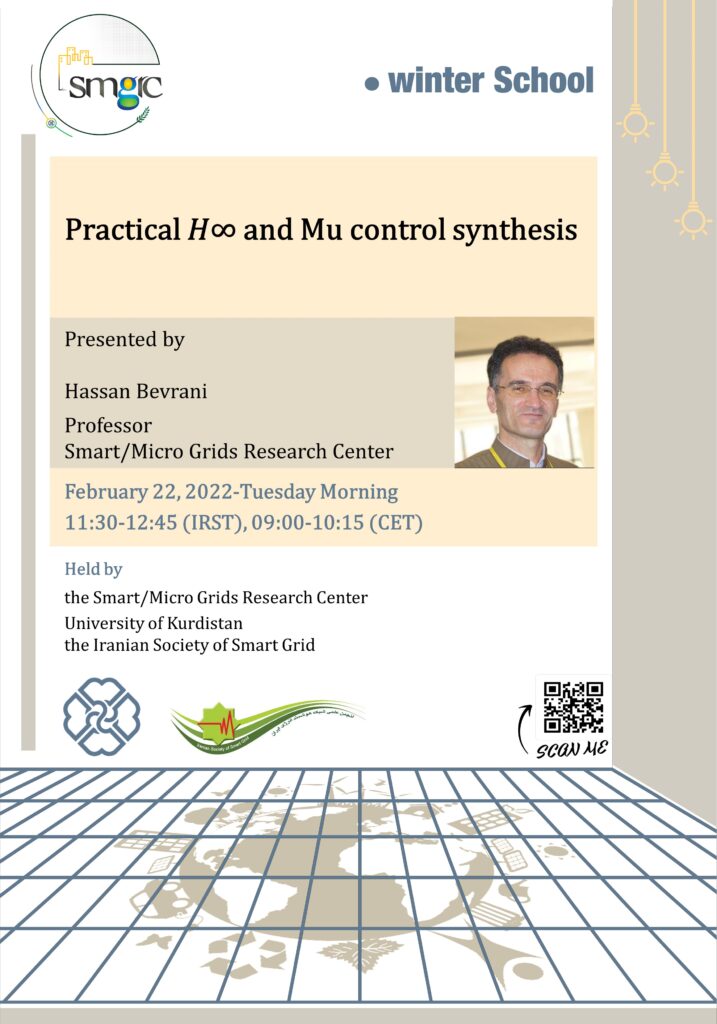
About the Presenter
Hassan Bevrani received a Ph.D. degree in electrical engineering from Osaka University in 2004. He is a full professor and the Program Leader of the Micro/Smart Grids Research Center (SMGRC) at the University of Kurdistan. Over the years, he has worked with Osaka University, Kumamoto University, Kyushu Institute of Technology, Doshisha University, Nagoya University (Japan), Queensland University of Technology (Australia), Centrale Lille (France), and Technical University of Berlin (Germany). He is the author of 8 international books, 15 book chapters, and more than 400 journal/conference papers. He has been the guest editor of 4 volumes of Elsevier Energy Procedia and Energy Reports journals. His current research interests include Robust control theory and applications, Smart grid operation and control, Power system stability, Microgrid dynamics and control, and Intelligent/robust control applications in the power electric industry.
General Information:
This course will be useful for …
The aims of this course are …
Where and how you can use this knowledge?
Most robust control methods suggest complex state-feedback or high-order dynamic controllers, which are impractical for industry practices. Furthermore, some experts have used new and untested robust control frameworks, which may have some difficulties in being implemented in real-world dynamic systems. In practice, simple proportional-integral-derivative (PID) controllers are common in the industry. However, since the PI/PID controller parameters are usually tuned based on experiences, classical, or trial-and-error approaches, they are incapable of obtaining good dynamical performance for a wide range of operating conditions and uncertainties.
In general, static output feedback (SOF) provides the simplest control structure. However, due to using simple constant gains, pertaining to the SOF synthesis for dynamical systems in the presence of strong constraints and tight objectives are few and restrictive. The existence of the SOF controller is shown to be equivalent to the existence of a positive definite matrix simultaneously satisfying two Lyapunov inequalities, where the determination of such a matrix leads to solving a non-convex optimization problem. Approaching a solution can be a difficult task, demanding a great computational effort.
In the other hand, for a variety of reasons, the optimal setting of PI/PID parameters is difficult. That is why most robust and optimal approaches suggest complex state-feedback or high-order dynamic controllers.
In this lecture, some important points on practical robust control synthesis are addressed. It is shown that necessary and sufficient conditions for SOF design, can be obtained in terms of two linear matrix inequalities (LMI) couples through a bilinear matrix equation. It is discussed how one can design a simple-structure robust controller in form of static gains or simple PI/PID controllers. The lectures are supplemented by several application examples including robust PI controller design for a load-frequency control unit in a power system, and designing a robust damping controller for a grid-forming converter in a microgrid.
The prerequisite for attending this lecture is some basic knowledge of classical linear control systems, linear algebra, as well as the previous lectures.